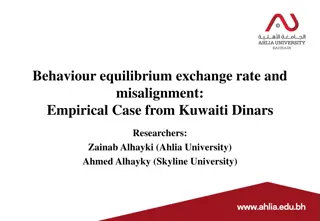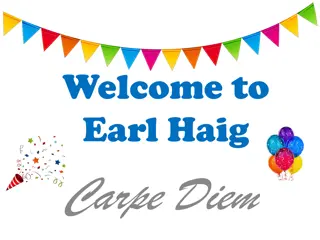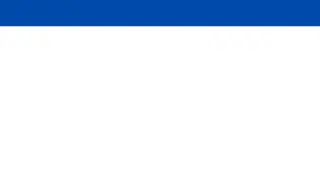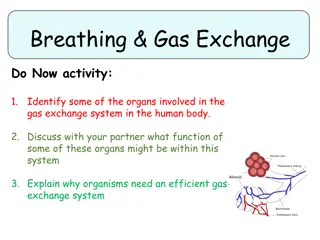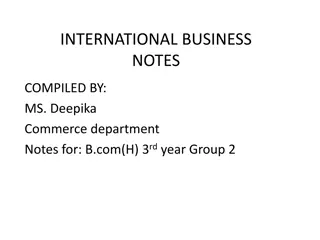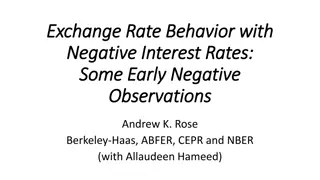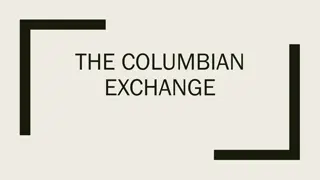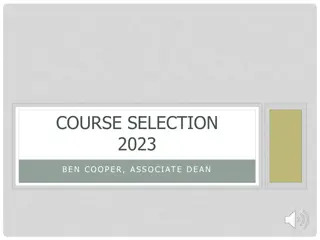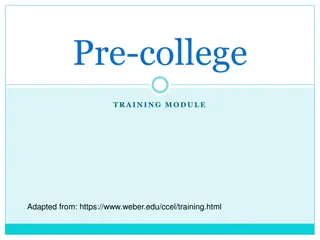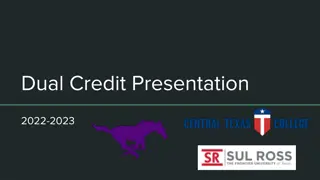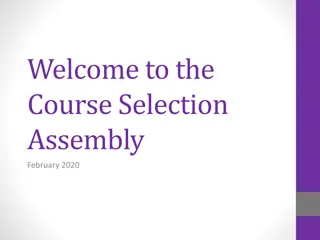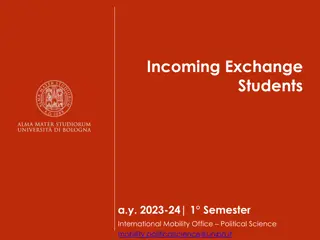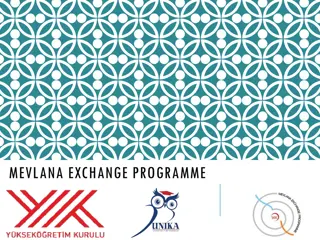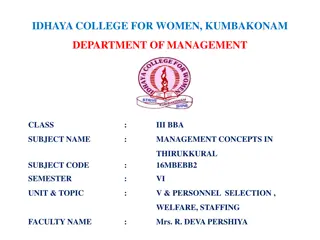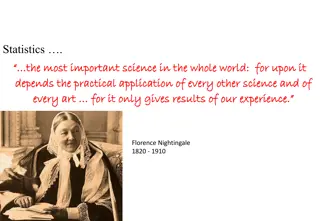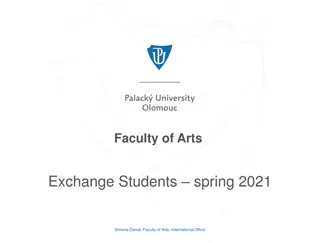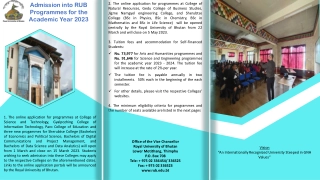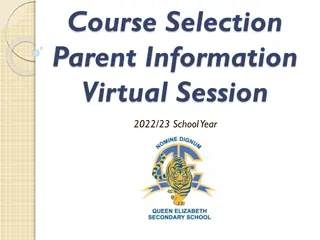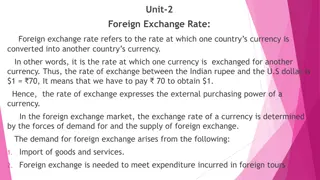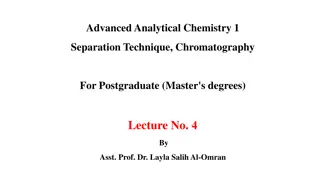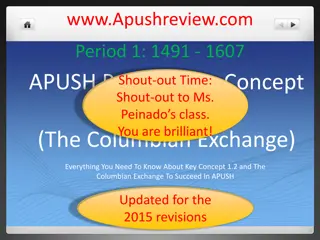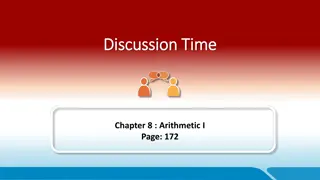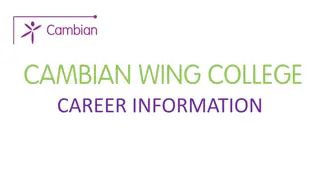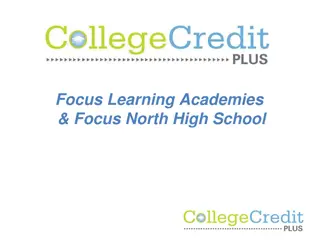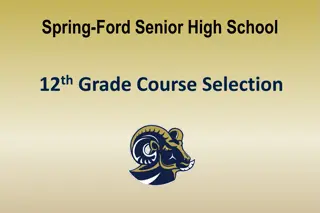Comprehensive Course Selection Guide for Exchange Students at King's University College
Welcome exchange students to King's University College! Discover the range of subject areas offered, understand course selection criteria, and learn about course levels and suffixes. Ensure a smooth academic journey by selecting courses wisely based on prerequisites and your academic background.
Download Presentation

Please find below an Image/Link to download the presentation.
The content on the website is provided AS IS for your information and personal use only. It may not be sold, licensed, or shared on other websites without obtaining consent from the author. Download presentation by click this link. If you encounter any issues during the download, it is possible that the publisher has removed the file from their server.
E N D
Presentation Transcript
Kings University College: Course Selection Information WELCOME Exchange students 2022 2023!
Choosing your courses: subject areas offered at Kings King s offers courses in the following subject areas: Interdisciplinary Programs Disability Studies Childhood and Youth Studies Criminology Human Rights Studies Social Justice and Peace Studies Thanatology Gender, Sexuality and Women s Studies Economics, Business & Math* History Modern Languages English, French, Spanish* Philosophy & Religious Studies Political Science Psychology* Social Work* Sociology Please note: There are some upper level courses in Management & Organizational Studies, Economics and Psychology that are only available to King s degree students. Only select first and second year Social Work courses are available to exchange students. Please check with King s International for courses that are available for exchange students.
Choosing courses 1. Read the coursedescription. 2. Make sure you know the background to a subject before taking it. For instance, at King s/Western, you must take Psychology 1000 (first year introduction) before taking Psychology 2410A/B (Developmental Psychology). Psychology 1000 is a prerequisite to Psychology 2410B. If you have taken a similar broad introduction to the field of Psychology at your home university, it is likely that you are prepared for Psychology 2410A/B. The pre-requisite needs to be indicated on your home university transcript.
Understanding course numbers Courses numbered 1000 1999: first year level (introductory) courses; most have no prerequisites. Examples: Economics 1021A, English 1020E. Courses numbered 2000 2099: more difficult than first year courses, but usually don t require prior knowledge of the subject; often chosen as electives by UWO students. Examples: Psychology 2011A, English 2017, History 2179, Sociology 2143E. Courses numbered 2100 4999: challenging senior level courses; require substantial prior knowledge of the subject, and also strong quantitative or essay-writing skills. Examples: Political Science 2231E, English 3334E, Social Justice 3311G.
Course suffixes: essay courses Assessment in these courses is based on essay assignments. E = full year essay course: about 5000 words of essay writing, if a senior course. Examples: Philosophy 2204E, Women s Studies 1020E. Please note that you can only choose these courses if you are coming to King s for a full academic year (Fall term and Winter term). F = first term essay half course; Examples: MOS 3401F , Childhood and Social Institutions 3300F . Choose these courses if you are coming to King s for the Fall term September to December. G = second term essay half course Examples: English 2735G, Psychology 2712G. Choose these courses if you are coming to King s in the Winter Term January to April.
Course suffixes: non-essay courses Assessment is based on multiple choice/quantitativetests No suffix = full year non-essay course Examples: Statistics 2035, Religious Studies 2132, Business 2257. Please note that you can only choose these courses if you are coming to King s for a full academic year (Fall term and Winter term). A = first term non-essay half course Examples: Economics 2300A, MOS 3310A, History 2190A. Choose these courses if you are coming to King s for the Fall term September to December B = second term non-essay half course Examples: Psychology 2135B, Sociology 2267B. Choose these courses if you are coming to King s in the Winter Term January to April.
Sample course description from the Academic Calendar Political Science2231E Course number and title: this is a full year essay course. This course surveys contemporary world politics and examines contending theories used by scholars and policymakers to make sense of international affairs. It also provides the conceptual tools and theories to interpret the international system. Anti-requisite(s): International Relations 2701E, Political Science 2131. Prerequisite(s): Political Science 1020E Extra Information: 3 hours, 1.0 course (Brescia, Huron, King's) Brief description of course content. A course that must be successfully completed before registration in this one. Where thecourse isoffered
Course Selection You must have the background for the course to be eligible to enroll. If you don t have the prerequisite for a course, discuss this with King s International: international@kings.uwo.ca Send in your course choices to King s International as early as possible. Courses can fill up quickly. Some courses are restricted to students in certain programs. The courses you select are not a guarantee of your enrolment in those specific courses. Once we have registered you in courses, we will contact you with your timetable. After the courses are finalized, your Coordinator must sign off on the King s Learning Agreement.
Course Selection Process http://www.westerncalendar.uwo.ca/Courses.cfm To check times and dates, choose courses offered in the term of your visit, from the Western timetable by selecting King s at: http://studentservices.uwo.ca/secure/timetables/mastertt/ttindex. cfm You can look up the detailed course outline from previous years here: https://www.kings.uwo.ca/current-students/courses- enrolment/course-information/outline-search/ The syllabus may be different for the year in which you wish to take the course, but you will get a general sense of the course content. For general information about King s programs visit: http://www.kings.uwo.ca/academics/ For courses offered at King s please see:
Course availability: check the timetable, not the Calendar Not every course in the Academic Calendar is available in the timetable for a specific year. Not every course in the Academic Calendar is available at King s. Exchange students are eligible to take 0.5 course credit at Western or an affiliate (Brescia or Huron) per semester. The Western timetable contains courses available at Western (and affiliates) in the Fall/Winter term: https://studentservices.uwo.ca/secure/timetables/mastertt/ttindex.cfm
Important websites for course planning For courses offered at King s see: http://www.westerncalendar.uwo.ca/Courses.cfm (look for the green K logo) Student Centre (view courses; viewgrades) https://student.uwo.ca/ How to View Grades: Select Academic Records ; to view past grades select View My Grades ; select the specific term from which you wish to view your grades; to view all grades select View Academic Summary , select Web Academic Report , and click Go
Credit Transfer to your home university If you are changing courses be sure that your home university coordinator approves the coursechange. Credit transfer is approved by your home university.
What happens once you are in the course? Join the class discussions, and participate as much aspossible If you have difficulty understanding the material, talk to your professor. Use the help of tutors at the Write Place (Writing Centre) Use your marks to judge how you are doing in the course. Often, the first set of marks is available before the DROP DEADLINES. If you think the course is too difficult for you, please let King s International know so they can assist you in dropping the course.
First Term Important Dates September 8: Classes begin September 16: Last day to add a full course, or a firstterm half course. October 11-14: Fall Reading Week November 12: Last day to drop first term half course without academicpenalty November 30: Last day to drop a full course without academic penalty December 8: Fall/Winter term classesend December 9: Studyday December 10-22:Exams
Second Term Important Dates January 2: Classes begin January 17: Last day to add a second term half course February 18-26: Winter Reading Week February 20: Family Day Holiday March 7: Last day to drop a second term half course without academic penalty April 7: Good Friday Holiday April 9: Easter Sunday April 10: Classes end April 11-12: Study days April 13-30: Exams
Transcripts When will the transcript bereleased? February 1 (for fall term students) June 1 (for full year or winter term students) We will be sending your transcript to your coordinator at your home university.


